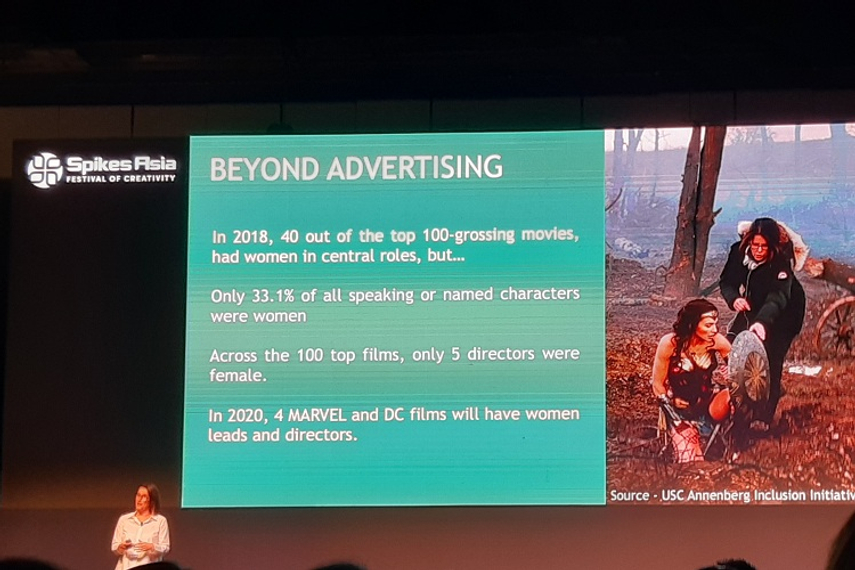

“As advertisers we have the power to normalise gender equality and use our marketing spend as a cause for good.” Bramham said.
She said Diageo went back and reviewed 100 ads globally and developed a framework for its 2000 marketers and agencies globally. Ads are now developed with a new framework around three areas:
- Representation (who is being portrayed)
- Perspective (whose point of view is being considered)
- Characterisation (are real people involved with similar complexities)
Campaign spoke with Bramham after her session:
Sharing work from India and abroad with brands like McDowells, Bailey’s, Smirnoff, Guinness and Johnnie Walker, Bramham candidly pointed out where they could have done better and how the framework was making a difference.
However, there is a strong business case to be progressive in gender portrayal in your communication. Bramham highlights some numbers to further drive the point.
 She also set aside some guidelines that both clients and agencies could follow towards unstereotyping their communication.
She also set aside some guidelines that both clients and agencies could follow towards unstereotyping their communication.







.jpg&h=334&w=500&q=100&v=20250320&c=1)
.jpg&h=334&w=500&q=100&v=20250320&c=1)
.jpg&h=334&w=500&q=100&v=20250320&c=1)
.jpg&h=334&w=500&q=100&v=20250320&c=1)



.jpg&h=334&w=500&q=100&v=20250320&c=1)





.jpg&h=268&w=401&q=100&v=20250320&c=1)
.png&h=268&w=401&q=100&v=20250320&c=1)
.jpg&h=268&w=401&q=100&v=20250320&c=1)
